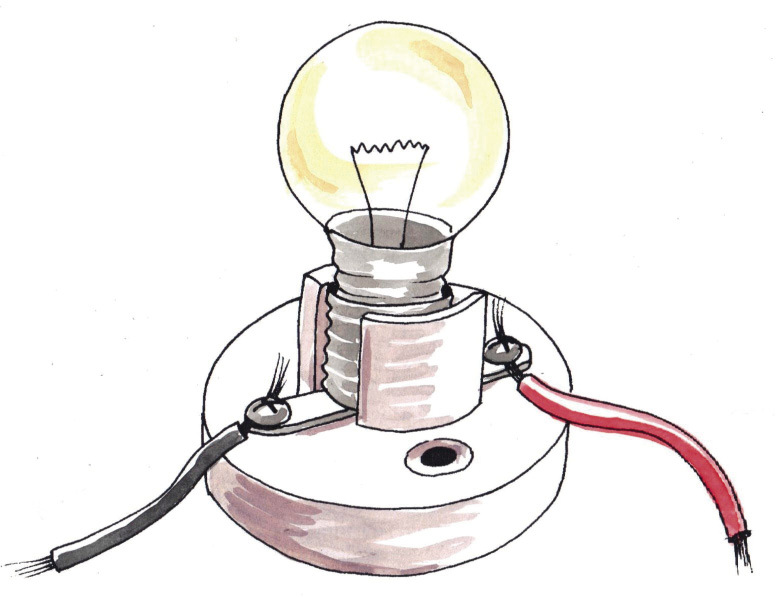
Gr7 Technology
Light bulbs have a very simple structure. At the base, they have two metal contacts, which connect to the ends of an electrical circuit. The metal contacts are attached to two stiff wires, which are attached to a thin metal filament.The filament sits in the middle of the bulb, held up by a glass mount.The wires and the filament are housed in a glass bulb, which is filled with an inert gas.

Lamp electrical circuit symbol hires stock photography and images Alamy
Step 3: Remove any electronics present and discard them. Step 4: Then, assemble the circuit in a 1-millimeter laminate sheet or a dot matrix PC. Step 5: Further, with a pair of scissors, cut around the laminating sheet. Step 6: Proceed to mark the six circular holes' position on the laminating sheet.

Open And Closed Circuits For Kids Kids Matttroy
Circuit Construction Kit: DC - PhET Interactive Simulations

Light bulb circuit Stock Image C009/8163 Science Photo Library
The bulb lights up because you are making a complete electrical circuit between the positive and negative terminals of the battery and the 2 wires that are inside the light bulb's base. You can also try this experiment with just 1 wire by touching the light bulb directly to 1 of the batteries terminals for 1 of the connections.
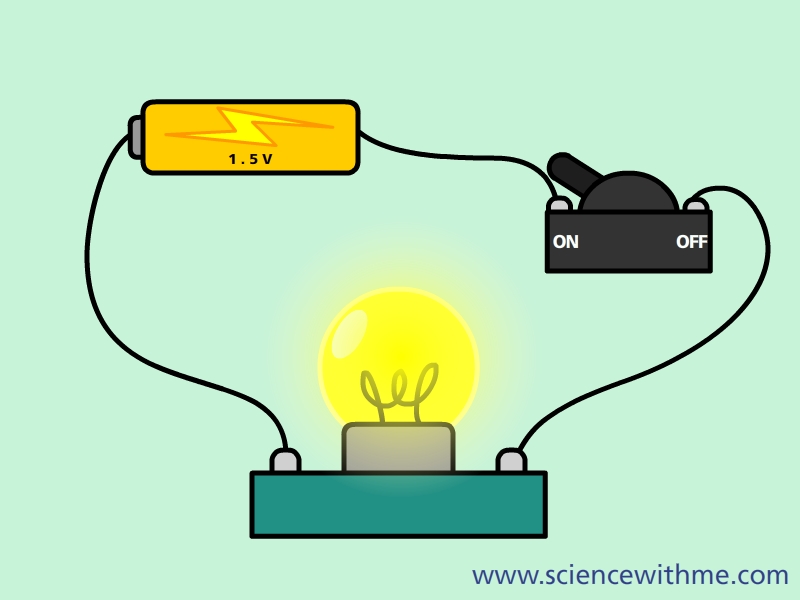
Simplifying SciencePresidium Electricity and Circuits Electric Bulb
Experiment with an electronics kit! Build circuits with batteries, resistors, ideal and non-Ohmic light bulbs, fuses, and switches. Determine if everyday objects are conductors or insulators, and take measurements with an ammeter and voltmeter. View the circuit as a schematic diagram, or switch to a lifelike view.
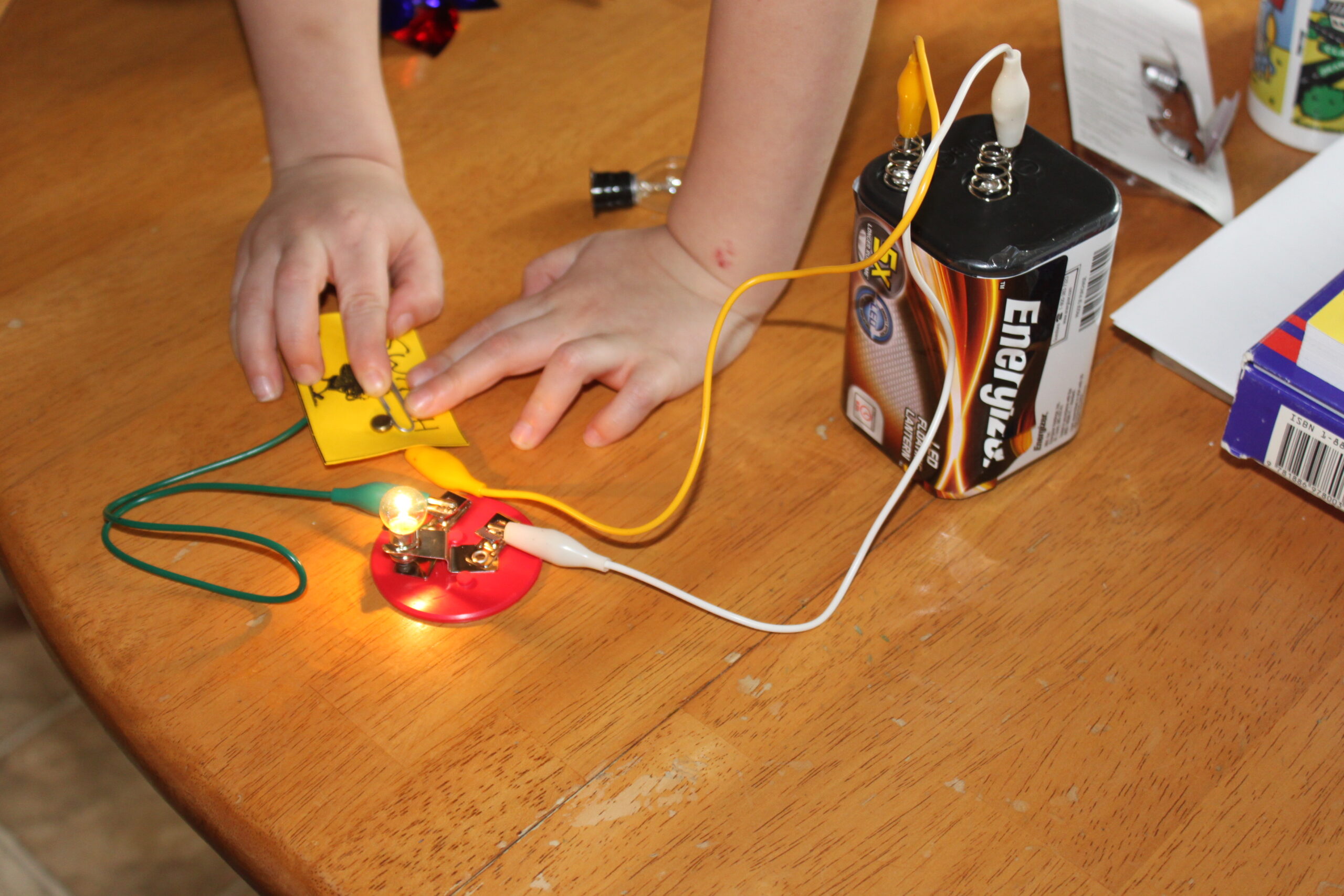
Electricity Experiments for Kids Frugal Fun For Boys and Girls
Figure 5.5.1 (a) Pictured above are two incandescent bulbs: a bulb (left) and a bulb (right). The bulb provides a higher intensity light than the bulb. The electrical energy supplied to the light bulbs is converted into heat and light. (b) This compact fluorescent light (CFL) bulb puts out the same intensity of light as the bulb, but at to the input power.

Simple Power Supply Circuits for LED Lamps YouTube
A 16-watt LED bulb produces similar light as a 100-watt incandescent light bulb. Keeping the bulb on for a whole year, the LED bulb would use 140 kWh, while the incandescent light bulb would use.

Pin on Cubs
Place a mason jar or clear glass over the top of the toilet paper tube stand. Touch the other positive and negative ends of the alligator clips to the ends of your super battery. Give the circuit a moment to circulate the electricity and… voila! The pencil refill begins to glow. How Does It Work
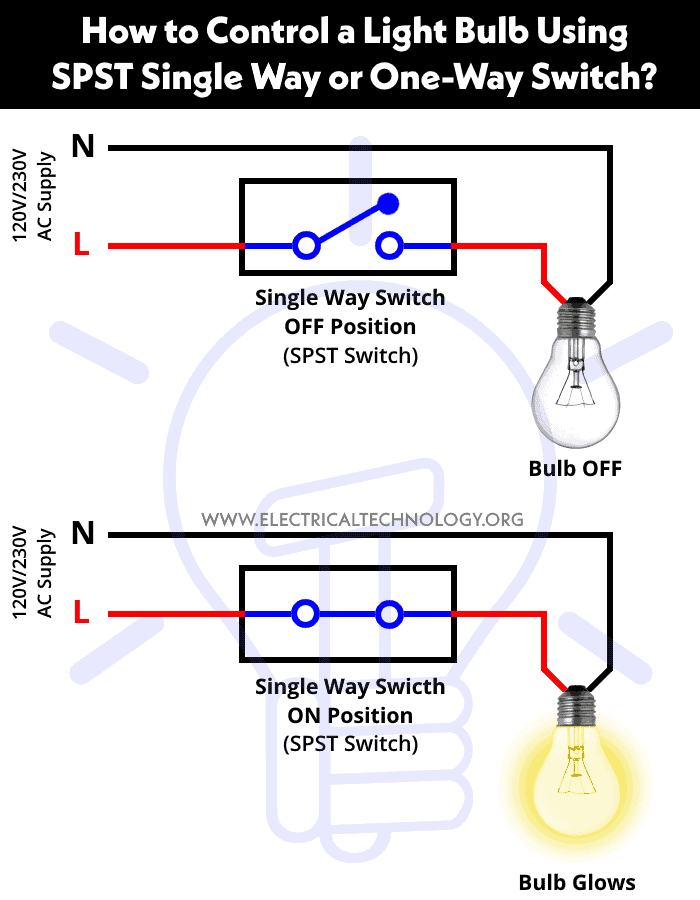
Light Bulb Wiring Diagram Collection
A simple electrical circuit consists of a power source, two conducting wires (one end of each being attached to each terminal of the cell), and a small lamp to which the free ends of the wires leading from the cell are attached.

light Bulb by VVolny on DeviantArt
What is an Electric Circuit? Requirements of a Circuit Electric Current Power: Putting Charges to Work Common Misconceptions In Lesson 1, the concept of electric potential difference was discussed.

An Electric Circuit Consisting of a Light Bulb Stock Vector
1 Gather the necessary materials. To build a simple circuit, you will need a power source, 2 insulated wires, a light bulb, and a light bulb holder. A power source can be any type of battery or battery pack. The rest of the materials can be found at your local hardware store.

ScienceEHS Investigating Electrical Circuits
One important point to consider here is that the filament of the light bulbs burns itself to produce light. This means that the electric current flowing through the filament heats it to the level where it starts emitting photons. The agitation and vibration of the atoms within the material of the filament produces heat energy.
Light Bulb Circuit Schematic Wiring Diagram Schemas
The introductory electric circuits chapter of your first year textbook Lillian McDermott, Physics by Inquiry, Vol 2; John Wiley, Toronto, 1996. Introduction: This series of experiments enables you to test your understanding of the properties of electric current flow. You will have available to you some small light bulbs, a battery (source of
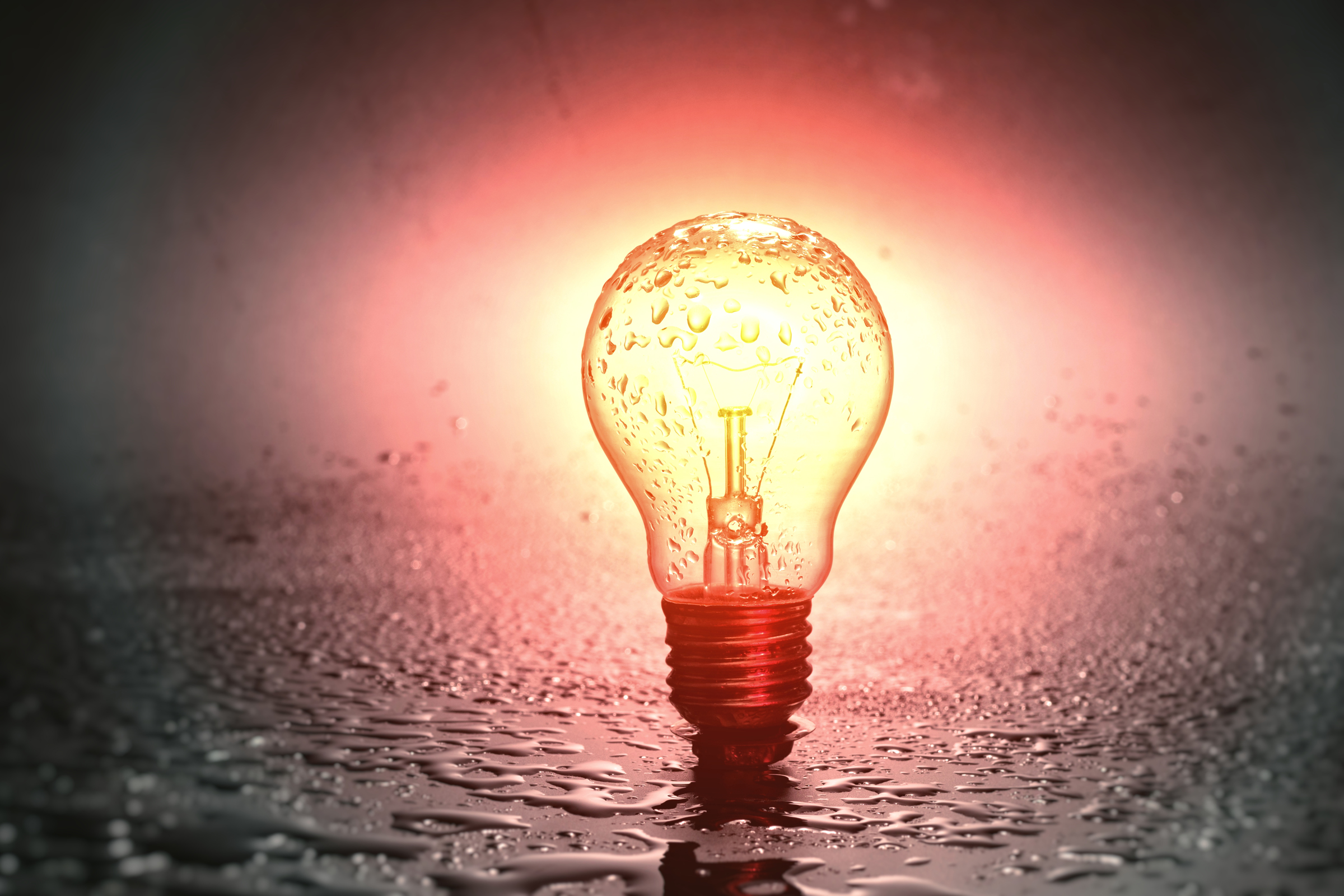
Free photo Isolated Light Bulb App, Lightbulb, Networking Free
A circuit is a path that electricity flows along. It starts at a power source, like a battery, and flows through a wire to a light bulb or other object and back to other side of the power source. You can build your own circuit and see how it works with this project! What You Need: Or Try the Snap Circuits 300 Kit

Draw a series circuit with one battery, a motor, a light bulb, and a
An electrical device that offers resistance to the flow of charge is generically referred to as a resistor and is represented by a zigzag line. An open switch is generally represented by providing a break in a straight line by lifting a portion of the line upward at a diagonal.

Light Bulb Turn Free Stock Photo Public Domain Pictures
The DC Circuit Builder equips the learner with a virtual electronic circuit board. Add resistors, light bulbs, wires and ammeters to build a circuit, Explore Ohm's law. Compare and contrast series, parallel and combination circuits. Use a voltmeter to measure voltage drops.